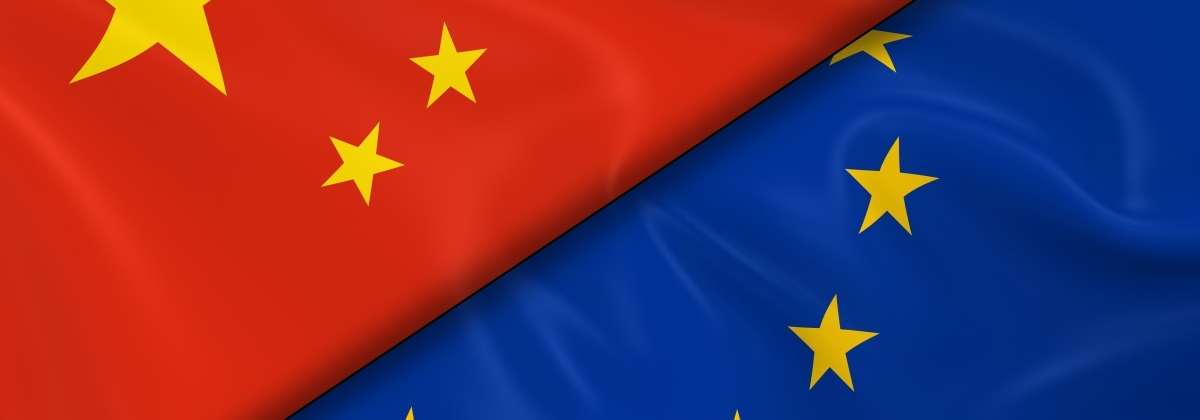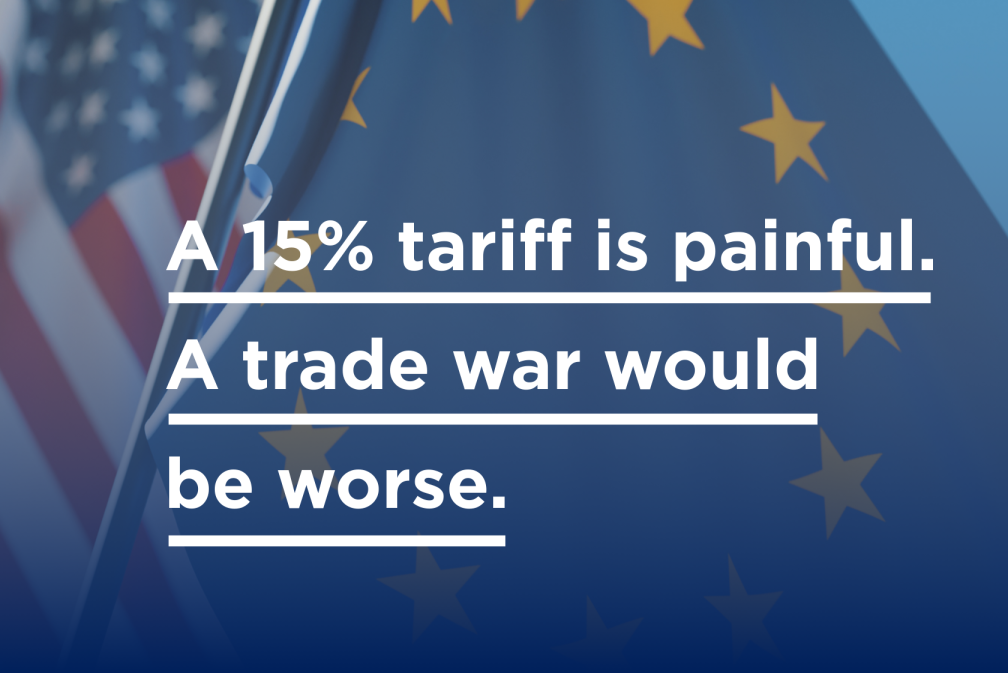A power and a market that cannot be neglected
China remains an influential geopolitical actor and an economic superpower. With a population of 1.4 billion, the growing Chinese domestic market represents significant business opportunities. For instance, China now accounts for a quarter of global sales of clothes, nearly a third of jewellery and handbags and around two-fifths of cars. It is also the world’s biggest market for machine tools and chemicals. For some sectors like technology-hardware industry and automobiles, China constitutes an increasingly important share of global revenues, up to a quarter of global sales for some companies.
Moreover, both EU and US companies operating in the EU have built complex and intertwined supply chains with third countries including China over the last 30 years. Bilateral trade and investment flows between the EU and China have almost doubled in the last ten years, making the relationship significant for both parties. China accounted for around 9% of overall EU exports in 2022, behind the US (19.8%) and the UK (12.8%), according to Eurostat. In addition, China was the largest partner for EU imports of goods (20.8 %) in 2022. The interdependence between the two is therefore significant, as recent research shows.
An uneasy relationship
Despite these economic ties, many fundamental challenges remain in the EU-China economic relationship. Recent ideology-led political decisions in China – such as growing restrictions against the private sector through regulatory crackdowns that benefit state-owned enterprises – neglect economic considerations and make the business environment increasingly less predictable, reliable and efficient. China’s state-led system, including direct government control over major parts of its economy, produces discriminatory outcomes and market distortions.
Many EU and US companies experience an asymmetrical business relationship and unlevel playing field in China. In particular, businesses are affected by a disparity in market access between Chinese and foreign firms, financing advantages for Chinese firms in strategic sectors and preferential support for selected Chinese industries. These disadvantages are accompanied by hostile policies like burdensome restrictions on foreign ownership, forced technology transfer rules and export restrictions like in the case of raw materials, as outlined by the Organization for Economic Cooperation and Development (OECD). At the same time, the increasing amount of counterfeited products being imported into the EU Single Market from China also remains a matter of concern.
Countering distortion
To counter these multiple challenges, the EU should equip itself with the necessary autonomous regulatory means to address the distortion created by China in its own internal market and safeguard a level playing field with Chinese companies. Tools like the EU Foreign Subsidies Regulation and the EU Anti-Coercion Instrument are emblematic examples. However, these autonomous measures should be used only as a last resort to limit negative externalities on industry. Instead, the EU should prioritise enhancing engagement with China.
Continued engagement with China and on China
Despite the many challenges, the strong interconnections between the EU and China require equally strong diplomatic efforts and continuous engagement. China remains a necessary partner to tackle global challenges. The EU must keep engaging with Beijing at different levels, while also upholding fundamental principles, such as a commitment to free trade, fair competition and the rule of law.
On the bilateral level, the EU should find new venues of collaboration, such as scientific cooperation, coordination on climate change and other global commons. Continuing to build a stronger and fairer economic relationship through bilateral agreements is key to removing trade and investment barriers. The EU-China Summit is a crucial step to stabilise a constructive dialogue with Beijing.
On the multilateral level, a functioning rules-based international system with the World Trade Organization (WTO) at its core is essential to deal with the potential distortions posed by countries like China. Efforts to constructively engage China in the reform of the WTO as well as in other multilateral fora are of the upmost importance. In addition, the EU should encourage plurilateral efforts to deal with unfair trade practices, including the trilateral talks on industrial subsidies between the EU, the US and Japan and ongoing cooperation under the G7 on export controls, coercion and supply chain resilience.
In addition, the EU must continue actively coordinating with its most important like-minded partner, the US, on common challenges posed by China through existing cooperation fora like the EU-US Trade and Technology Council’s (TTC) working groups on investment screening, misuse of technology threatening security and human rights, export controls, secure supply chains and global trade challenges like economic coercion. Cooperation with other relevant like-minded countries like the UK is also necessary.
De-risking vs decoupling
These days, de-risking is a more accurate buzzword than decoupling, as highlighted by the 20 June EU Economic Security Strategy. The term encompasses limiting vulnerabilities in strategic sectors like raw materials supply for semiconductors and clean technology and economic exposures to countries with a higher political risk, while promoting diversification and stronger trade relations with different strategic partners. However, questions remain about what de-risking really means and the impact on industry stakeholders. Given the primary role that some – including German Chancellor Olaf Scholz – expect the business community to take in this de-risking push, the public sector must regularly consult the private sector when exploring ways to mitigate risk. It is important that policymakers carefully assess both the potential negative impact of de-risking policies on trade and investment flows and strategies for de-risking in coordination with like-minded countries, including the G7 countries and the US under the TTC framework.
When de-risking, the EU should also avoid taking unilateral trade-distorting actions and adopting restrictive measures, like barriers to trade and investment, in the name of national security. In particular, the European Commission and Member States should carefully assess the need for and application of inbound and outbound investment screening instruments to prevent unintended negative consequences on businesses.
At the same time, the EU must prioritise strengthening the resilience of supply chains in its de-risking strategy. An essential tool to achieve this resilience is diversification through free trade agreements, as well as sectoral partnerships such as on raw materials. The EU should therefore accelerate negotiations with Australia, India, Indonesia and Thailand, while also advancing the signing and ratification of trade agreements with Mexico, Chile and Mercosur before the end of the mandate and adopting a new Generalized Scheme of Preference regulation.
China is and will remain an essential actor in geopolitics and economics. It is in our shared interest to manage the relationship in a strategic way that allows businesses to reap the benefits of the Chinese market while mitigating the risks posed by its policies and geopolitical challenges and addressing level playing field distortions.



